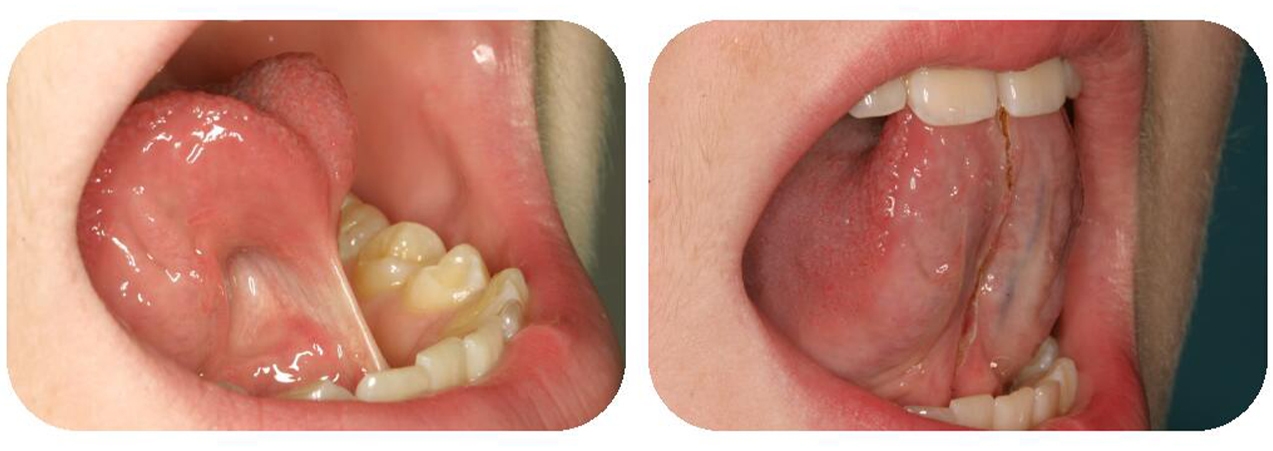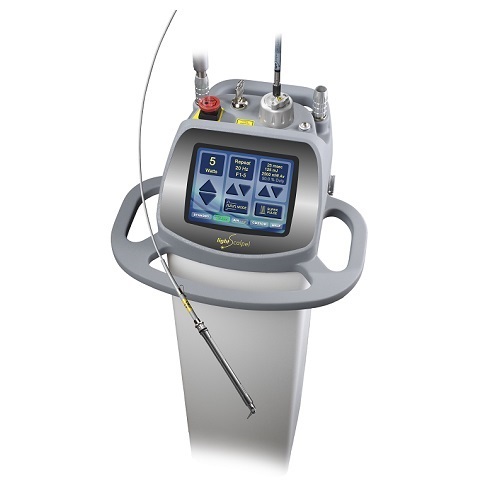Lip-Tie & Tongue-Tie Release
Infants
Tongue-ties and lip-ties present in babies are serious and lead to many oral and health risks, and most often cause pain to the breastfeeding mother. Both mother and baby will typically demonstrate symptoms when the baby has a tongue and/or lip-tie:
Baby’s symptoms:
- Reflux, colic, or gassy
- Difficulty latching; gumming or chewing nipples
- Poor weight gain
- Makes a clicking noise while sucking
- Excessive drooling
- Choking on milk or popping off the breast to gasp for air
Mother’s symptoms:
- Cracked, blistered, or bleeding nipples
- Plugged ducts, thrush, or mastitis
- Discomfort while nursing
- Compromised milk supply
- Sleep deprivation (as the baby is not able to nurse efficiently, he may compensate by nursing more often, including at night.)



Children / Adults
Tongue-ties and lip-ties in children and adults are often overlooked conditions that can lead to a myriad of health problems, including speech issues, breathing issues, and complications with erupting permanent teeth. The problems associated with ties do not improve with time but rather result in even more challenges. These problems can impact everything from oral/dental health to social situations and self-esteem.
Children/Adolescents with untreated tongue or lip-ties may experience:
- Inability to chew age-appropriate solid food
- Gagging, choking, vomiting, drooling
- Delayed speech development
- Dental health problems
- Insufficient development of the palate (narrow archway, etc.)
- Behavior problems
- Formation of habits to compensate for tied tongue/lip
- Sleep disturbances
Adults with untreated tongue or lip-ties may experience:
- Speech impairment (inability to speak clearly, unable to pronounce certain sounds, etc.)
- Pain, clicking, popping in the jaws
- Migraines/Headaches
- Protrusion of lower jaw
- Dental health problems (inflamed gums, increased need for fillings, etc.)
- Difficulty keeping the denture in place
- Embarrassment of appearance and speech
- Sleep-disordered breathing/sleep apnea


Treating Tongue-Ties And Lip-Ties
Our office utilizes a CO2 laser called the LightScalpel that quickly severs the tissue, making the procedure and recovery faster and more comfortable than “clipping” the tie. In the case of a tongue-tie release, we perform a functional frenuloplasty with sutures, which allows for just the right amount of tissue release in order to maximize the mobility of the tongue during the healing process. Once the release is complete, if the child is currently breastfed, the doctor and assistant will offer the mother to nurse (in our private lactation room), before leaving the office. Patients receive a thorough explanation of post-op instructions and a list of recommendations to take home, including the protocol of intra-oral exercises that are recommended to be done.

MULTIDISCIPLINARY CARE
For infants, it is strongly recommended to see a Craniosacral Therapist both before and after a tongue-tie or lip-tie procedure. At our office, Jackie Lowe is available and is trained in CST and lactation counseling, to help aid both baby and mother in breastfeeding after the ties are released.
For children and adults, it is our office’s policy to have the patient work with a Myofunctional Therapist both before and after a tongue-tie procedure. At our office, Jessica Emmert is trained to work with both children and adults through Myofunctional Therapy / Orofacial Myology.
MULTIDISCIPLINARY CARE
For infants, it is strongly recommended to see a Craniosacral Therapist both before and after a tongue-tie or lip-tie procedure. At our office, Jackie Lowe is available and is trained in CST and lactation counseling, to help aid both baby and mother in breastfeeding after the ties are released.
For children and adults, it is our office’s policy to have the patient work with a Myofunctional Therapist both before and after a tongue-tie procedure. At our office, Jessica Emmert is trained to work with both children and adults through Myofunctional Therapy / Orofacial Myology.
Contact Us

Office Hours
Mondays: 7:00 – 4:30
Tuesdays: 7:00 – 4:30
Wednesdays: 8:00 – 4:30
Thursdays: 8:00 – 4:00
Fridays: 7:00 – 3:00
Natural Smiles
Dental Care
3434 Lexington Ave. N.
Suite 700
Shoreview, MN 55126
contact@naturalsmilesdental.com
To inquire about making an appointment,
please call our office at your convenience:
651-483-9800

